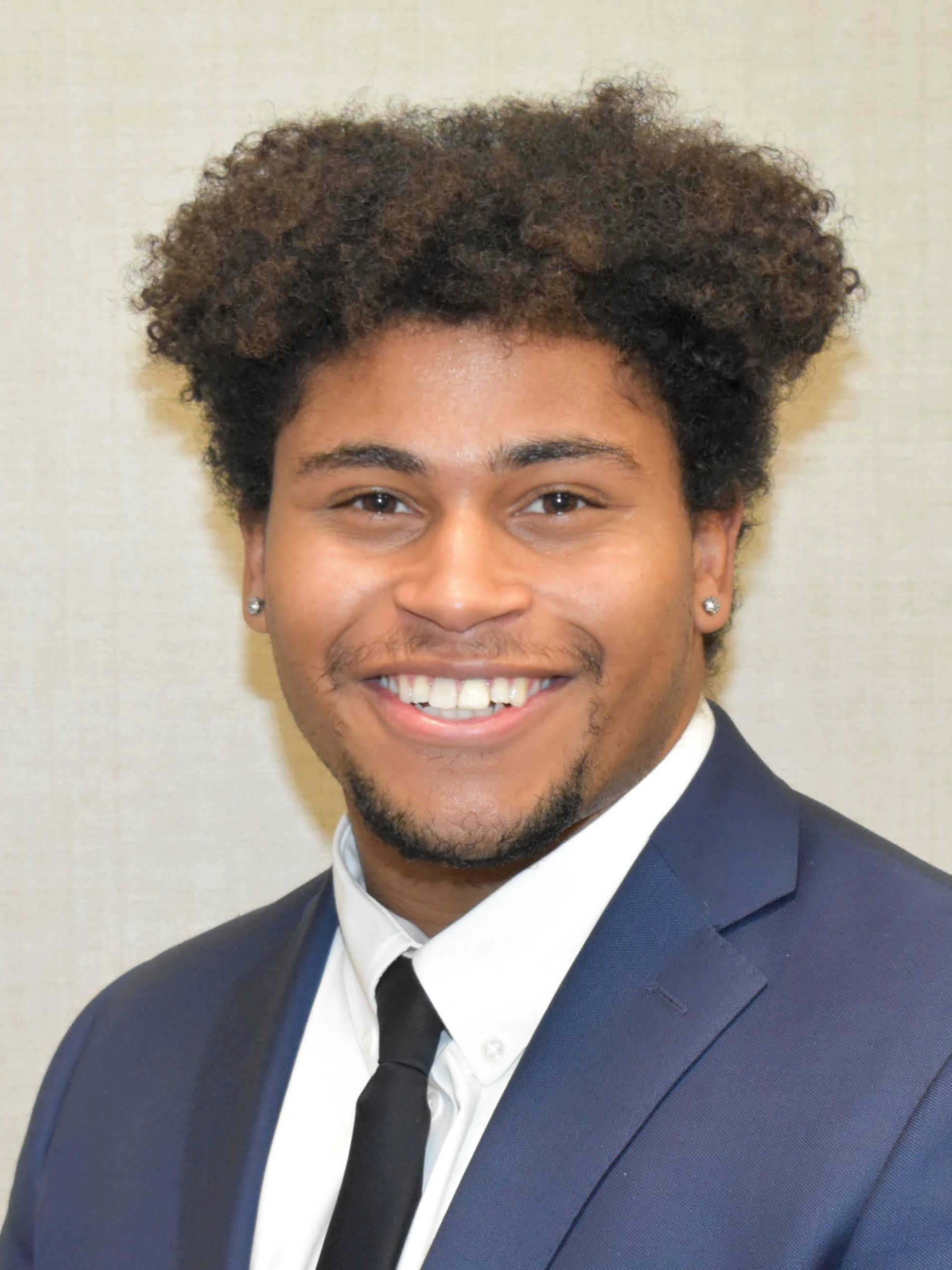 Divon Pender, a 2023 graduate of the School of Management and Labor Relations (SMLR) at Rutgers University-New Brunswick, was named that year as a recipient of the Riki Jacobs Livingston Pride Award given by the Livingston Alumni Association at Rutgers.
Divon Pender, a 2023 graduate of the School of Management and Labor Relations (SMLR) at Rutgers University-New Brunswick, was named that year as a recipient of the Riki Jacobs Livingston Pride Award given by the Livingston Alumni Association at Rutgers.
Pender, a lifelong resident of South Plainfield, New Jersey, has served as a member of that borough’s board of education since 2022. He is the youngest person ever, and the first man of color, elected to the board.
“When I vote on any agenda item, I do not just vote on behalf of myself but also for every individual who is affected by this change,” he wrote in his Pride Award application essay. “The community that has supported me throughout my adolescent years is the same community that I fight for every single day.
“What I do isn’t only for me. I do it for my brothers and sisters, family and friends, strangers, and future generations. In everything that I do in life, I approach it with the same model: it is bigger than me.”
At Rutgers, Pender researched education policy and the factors that encourage or deter students in a pre-K-12 school district to pursue postsecondary learning. His Rutgers SMLR degree is a bachelor of arts in human resource management with a minor in business administration.
In May 2025, he earned a master of arts in higher education, student affairs, and international education policy from the University of Maryland.
In his Pride Award essay, Pender credits his mother for encouraging him to participate in multiple civic organizations including the Boy Scouts of America, the New Jersey Clean Communities program, and the National Association for the Advancement of Colored People (NAACP). For his Eagle Scout service project, Pender beautified and restored the exterior areas of John F. Kennedy Elementary School in South Plainfield.
He started his academic career in 2019 at the University of Scranton as a student wrestler. He later transferred to Middlesex College, from which he earned an associate of science degree in business administration in 2021. At Middlesex College, during the COVID-19 pandemic, he served as philanthropy chair of the school’s honors society, Phi Theta Kappa, where he hosted several donation drives. While at Middlesex, he served as the NAACP’s young adults chair, hosting a Juneteenth celebration and young adult panels.
At Rutgers, Pender volunteered with multiple student leadership programs, including the Scarlet Council, the Mark Leadership Conference team, Thrive Student Support Services, and the Ronald E. McNair Post-baccalaureate Achievement program.
In August 2025, Pender was named coordinator of student-athlete development for Kean University’s Department of Athletics and Recreation.
“As a former student-athlete, I understand the perils associated with balancing an athletic identity with academics, social environments, and career development, and I am eager to be a pillar to student-athletes in one of the most critical moments of their lives,” he said in an interview with TAPinto.


